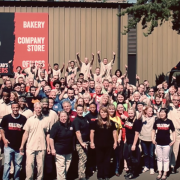Almost every aspect of our lives has been completely reshaped by technology. Where we once had to go out into the real world in order to meet new people and build relationships, we now use algorithms and smartphone apps instead. Cryptocurrencies, like Bitcoin have also completely redefined the way we view money and the entire financial world. But the implications of technological advancement can be felt in almost every sphere of our day to day lives, including our professional lives.
I recently had the pleasure of attending a conference in Austin that focused on the future of entrepreneurship. As a writer, I often meet many remote workers who keep a home base but travel often. But I noticed a particularly interesting trend with this crowd of people. Every time I asked young conference attendees where they lived, they would respond by telling me they were digital nomads and, therefore, did not technically live anywhere.
For anyone unfamiliar with the term, a digital nomad is a new type of young professional who utilizes telecommunications technology to work from just about anywhere. By doing so, these freelancers have been able to combine work with travel, greatly increasing their quality of life and presenting new career opportunities.
At first, the thought of giving up all my possessions and traveling around the globe without a permanent home sounded crazy. Not to mention, having worked in the traditional office environment for the whole of my professional life, this lifestyle was completely foreign to me. How would you be able to hold meetings or get to know your coworkers without coming into an office every day? But then I realized that in the modern world we are living in, technology has made the traditional office almost irrelevant.
The Rise of the Digital Nomad
There used to be a time when being present in an office day to day really mattered. Without the internet and thus, without email, communicating with coworkers and project managers was not nearly as simple as it is today.
However, as Entrepreneur extraordinaire Elon Musk has famously pointed out, in the world of internet and email, face to face meetings are, for the most part, no longer necessary. Elaborating on this point, Musk said, “Don’t be in a meeting unless there’s a purpose for it; either to make a decision or get people up to speed. In most cases, an email will suffice.”
And aside from email, thanks to applications like Skype or Slack—a platform that allows coworkers to communicate with each other and collaborate on different projects online, coming into the office every day is almost irrelevant. In fact, in many instances, when employees are free to work undistracted by coworkers or other office chatter, the quantity and the quality of work actually improves.
And unrestrained by the typical 9-5 workday, employees are also free to make their own schedules, making it easier to balance a hefty workload with leisure time.
Additionally, with the rise of the gig economy, many young professionals are already accustomed to the freelance lifestyle in fields like graphic design, website development, and journalism. Focusing on project-based work, rather than daily tasks, has allowed these workers to focus all their energy on producing quality products.
And for employers who have concerns that perpetual travel might make their employees less productive, there are dozens of open-sourced resources to help bridge the communication gap.
Platforms like Trello and Asana, for example, allow supervisors to divvy out tasks with specific checklists. As different stages of the project are completed, employees can check them off and move on to the next task. This allows employers to see what employees are working on at all times, whether they are in the office or not.
Also, with most airlines now offering wifi to their passengers, there is almost no excuse for a digital nomad to miss deadlines or leave tasks incomplete.
The Fulfilled Employee of the Future
While not all jobs can be performed remotely, it is estimated that by 2035, there will be over one billion digital nomads. When asked if this would be a desired career path, 68% of millennial job seekers responded that this lifestyle appealed to them. And why wouldn’t they?
Many of us grew up in households where our parents worked themselves to the bone, rarely taking time off to travel or see the world. And while hard work is nothing to scoff at, the traditional working environment can take a toll on one’s quality of life. But thanks to technology, millennial workers have the opportunity to travel the world while also building and maintaining a prosperous career. And for those who later decide they want to settle down and plant roots, their knowledge of the world will allow them to select a location where they know they can be happy.













